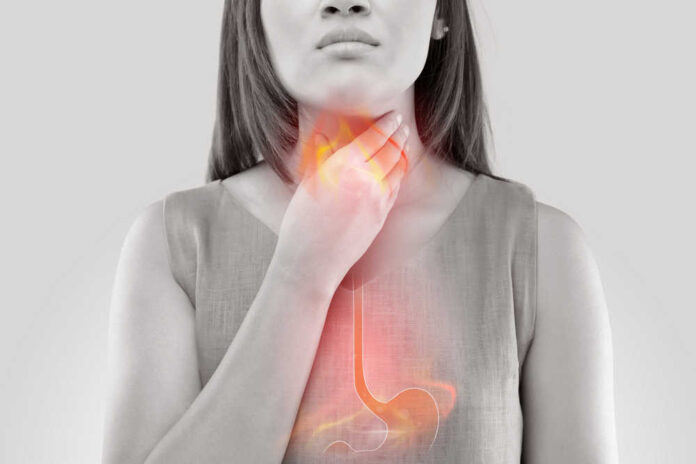
Each bit of food you swallow travels down your esophagus and into your stomach.
There, it is mixed with gastric juices such as hydrochloric acid and digestive enzymes, which dissolve and break down the food into small particles that can be easily digested by your intestines.
Your stomach lining is specially designed to withstand the corrosive action of these strong stomach acids. Still, if any of it splashes up (refluxes) into your esophagus, it can cause irritation and inflammation, leading to symptoms such as:
- heartburn
- chest pain
- back pain
- coughing
- nausea
- sore throat
- hoarseness
- bad breath
This condition is called gastroesophageal reflux disease (GERD).
Why Does it Happen?
A small ring of muscle called the lower esophageal sphincter (LES) between your stomach and your esophagus.
The LES is like a one-way valve that lets food into your stomach and closes to keep it there.
After years and years of spicy foods, fatty foods, hot temperatures, alcohol, soda, and inadequately chewed food, the muscle fibers of the LES weaken and lose their elasticity.
The valve cannot close as tightly as it should, allowing corrosive stomach acids to flow in the wrong direction and burn your esophagus.
How To Treat GERD
Over-the-counter antacids can help to neutralize stomach acids and provide temporary relief. Your doctor may also prescribe a proton pump inhibitor medication, which blocks stomach acid production.
While these medications can help manage your symptoms, the damage to your LES and esophagus won’t be able to heal if you continue to eat in the same way that caused the problem in the first place.
Avoid hot temperatures, spicy foods, fried foods, alcohol, soda, and other items that trigger your symptoms.
Chew your food slowly and thoroughly into a smooth paste before swallowing. Chunks of unchewed food will excessively stretch your LES and cause reflux after your meal. Instead of shoving food down as quickly as possible, put your fork down between bites and spend some extra time chewing.
Don’t lay down after eating, as the horizontal position can allow stomach acids to flow more easily into your esophagus.
GERD can be a painful and frustrating condition, but by making simple changes to your diet and lifestyle, you can manage your symptoms and even heal your condition.
Talk to your primary care physician about what you are experiencing and work together with them to develop a treatment plan that will work for you.






















